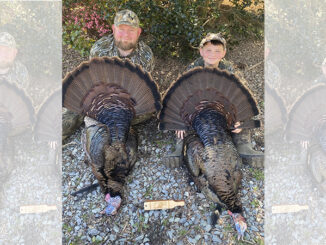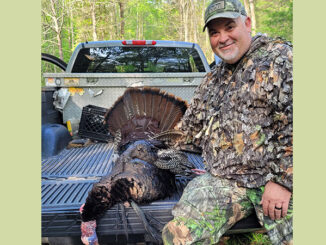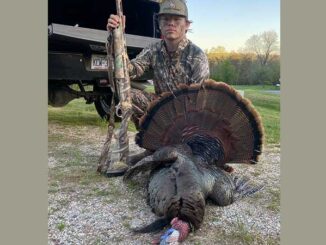
Biologists who monitor fish populations at John H. Kerr Reservoir(Buggs Island) for the Virginia Department of Game and Inland Fisheries believe largemouth bass virus has taken hold in the lake.
“We did find LMBV in the lake,” said Dan Michaelson, a VDGIF fisheries biologist at the agency’s Farmville, Va., office. “We’ve sent (samples) to the U.S. Fish and Wildlife Service lab in Pennsylvania for DNA testing.”
LMBV is a fatal disease of largemouth bass.
The 49,600-acre lake that sprawls across the North Carolina-Virginia border has been one of the top bass-fishing lakes in the southeast for years.
However, even though the Virginia agency doesn’t have those final test results, Michaelson said the virus likely has been in the lake for several years. It only exploded in 2009.
“Remember what happened in the late 1990s and early 2000s in the big southern reservoirs in Alabama, Texas and Louisiana when the virus first showed up,” he said.
“They had big jumps in (bass) mortality and big fish kills. We haven’t had fish kills where you see fish floating, but mortality is up.”
Complaints in 2009 about few 3- to 4-pound fish and almost bigger fish at Kerr Lake, a highly-popular fishing venue for North Carolina and Virginia anglers, created concern for the VDGIF.
“The original complaints started about this time last year,” Michaelson said. “In 2008 (anglers) were saying the bass fishery was as good as it ever had been, then the next year they said they caught very few 3- and 4-pound fish and almost no larger ones.”
LMBV seems to affect bass mostly three pounds and up.
“You don’t see (LMBV) in the little guys, and the reason you don’t see it much in larger bass, 7- to 8-pounders at Buggs, is because there aren’t a lot of them in the lake,”Michaelson said.
Virginia first tested Kerr Lake for LMBV in 2002, he said, but came up with “real minor positive results,” he said. “We had one out of 60 bass test positive, and that could have been a false positive.”
At the time, a positive test result for one bass wasn’t cause for alarm.
However, the virus, just like human viruses, is more easily spread through contact between species members. So as Kerr Lake’s bass population grew, the likelihood of the spread of LMBV may have increased exponentially.
“It kind of goes in 3-year cycles,” Michaelson said. “It hasn’t wiped out the (Kerr Lake) bass fishery yet, but it certainly has put it in a decline.
What caused it to spurt, we don’t really know. It could have been the drought, the heat or large numbers of bass in the lake.”
After complaints last year from anglers, electro-sampling tests by Virginia biologists showed a large jump in largemouth mortality rates at Kerr Lake.
“The lake had a big climb in mortality rates, up to 10 percent, and a slight decline in the growth rate,” Michaelson said. “That’s when we knew something was going on.”
An initial test – that hasn’t been confirmed yet USFWS lab – indicated that 41 percent of Kerr Lake’s bass are infected with LMBV.
“You’re losing fish all the time (to natural mortality), so an (additional) 41 percent LMBV infection rate isn’t good,” Michaelson said.
The good news, he said, is Kerr Lake continues to have good bass recruitment.
“We have a lot of spawning(-age) fish coming in,” he said, “and there’s a lot of bass in the lake, just smaller ones.”
Bass also apparently develop immunity to the disease.
However, the growth rate of bass at Kerr Lake is slower than other southeastern impoundments, which withstood LMBV’s assault 10 years ago, then rebounded after three or four years.
“But the cycle may take six or seven years to run its course at Buggs Island because the growth rate is slower,” Michaelson said.
Virginia biologists recommend that fishermen, especially those who compete in tournaments at different lakes, use bleach to clean livewells, boats and rods and reels before going to another lake to help prevent the spread of LMBV.
Let us know what you’ve found while fishing Kerr Lake by posting a report in our fishing forum. If you aren’t yet a registered NorthCarolinaSportsman.com user, click here to get started today!




